The most common certifications for chocolate
Nowadays consumers are aware of their purchases more than ever. They don't look only for products with satisfying features and quality, but they prefer to reward those companies that make efforts toward a more sustainable supply chain. Environment, social issues and food safety are topics that are no longer ignored. "Ethical foods make consumers feel morally superior" as Niamh Michail wrote today on Confectionery News.com . Therefore, companies have to keep up and find a proper answer to this growing demand for ethical responsibility.Especially in the chocolate world, small and big companies are now fighting harder than ever to beat the competition. Since consumers are expecting more efforts from chocolate companies, the new battle is played on the ground of certifications. A company that takes an extra step to get certified is well appreciated by consumers and sets higher standards for the entire competition.But what are the most common certifications that are found nowadays on the packages of chocolate brands?As you already know, I categorize every single chocolate bar that I try in My special folder and not only I save the front of the packaging and the ingredients list, but I also make a list of all the peculiarities of that chocolate, certifications included. To have an idea of what I am blabbering about, you can check out My favorite brands. I can now count more than 40 different chocolate bars from January 2015, so I thought of making a list of the most common certifications that we can expect from chocolate companies, with the hope that this will be useful for both consumers, to be aware of their purchases, and producers, to be aware of the certifications available for them.Here they are: 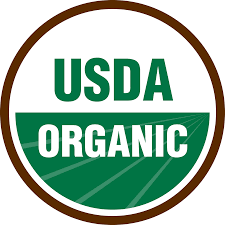 USDA Organic - this certification covers the chocolate from farm to table. It tells us that there was no use of synthetic fertilizers, prohibited pesticides and genetically modified organisms. At least 95% or even more of the content of the chocolate is organic. For more info visit USDA Organic Website.
USDA Organic - this certification covers the chocolate from farm to table. It tells us that there was no use of synthetic fertilizers, prohibited pesticides and genetically modified organisms. At least 95% or even more of the content of the chocolate is organic. For more info visit USDA Organic Website. 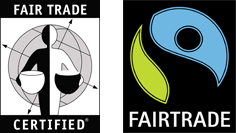 FAIR TRADE - this certification applies to the entire supply chain. It tells us that higher social and environmental standards have been set to tackle poverty and empower producers in the poorest countries in the world. For more info visit FAIR TRADE International Website.
FAIR TRADE - this certification applies to the entire supply chain. It tells us that higher social and environmental standards have been set to tackle poverty and empower producers in the poorest countries in the world. For more info visit FAIR TRADE International Website. 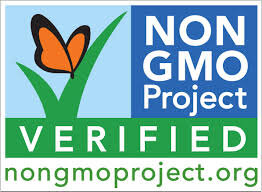 NON GMO - this certification is found on chocolate that has gone through a verification process and ongoing testing. It tells us that the product contains no more than 0,9% GMO. Be aware that unfortunately there is nothing like GMO free nowadays. Fore more info visit NON-GMO Project Website.
NON GMO - this certification is found on chocolate that has gone through a verification process and ongoing testing. It tells us that the product contains no more than 0,9% GMO. Be aware that unfortunately there is nothing like GMO free nowadays. Fore more info visit NON-GMO Project Website. 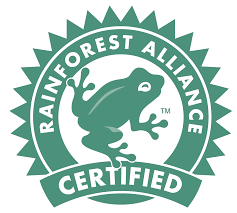 Rainforest Alliance - this certification evaluates farms, logging companies and other forestry businesses. It tells us that the product has met rigorous environmental, social and economic criteria to conserve wildlife and protect workers. For more info visit Rainforest Alliance Website.
Rainforest Alliance - this certification evaluates farms, logging companies and other forestry businesses. It tells us that the product has met rigorous environmental, social and economic criteria to conserve wildlife and protect workers. For more info visit Rainforest Alliance Website. 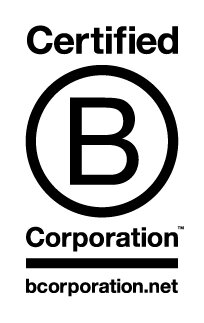 B Corporation - this certification applies to companies. It tells us that the chocolate product with this logo was made by a company with higher standards of transparency, accountability and performance to solve social and environmental problems. For more info visit B Corporation Website. Please note that some chocolate companies, especially the artisan and local ones, may put the same ethical effort in their products, but cannot afford to pay for certifications. I am sure they will be more than glad to answer your inquiries about their raw materials, supply chain and production process. Keep in mind that today being ethically responsible is one of the most powerful tools to create brand loyalty and long-lasting customers. Do YOU look at these certifications when you buy chocolate? How do you perceive them? Speak out, your opinion matters!I did NOT get paid and did NOT receive any kind of favor for writing this article. These are my honest opinions at your service.
B Corporation - this certification applies to companies. It tells us that the chocolate product with this logo was made by a company with higher standards of transparency, accountability and performance to solve social and environmental problems. For more info visit B Corporation Website. Please note that some chocolate companies, especially the artisan and local ones, may put the same ethical effort in their products, but cannot afford to pay for certifications. I am sure they will be more than glad to answer your inquiries about their raw materials, supply chain and production process. Keep in mind that today being ethically responsible is one of the most powerful tools to create brand loyalty and long-lasting customers. Do YOU look at these certifications when you buy chocolate? How do you perceive them? Speak out, your opinion matters!I did NOT get paid and did NOT receive any kind of favor for writing this article. These are my honest opinions at your service.
